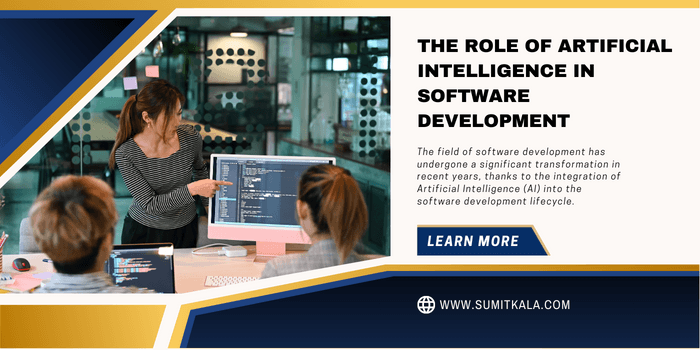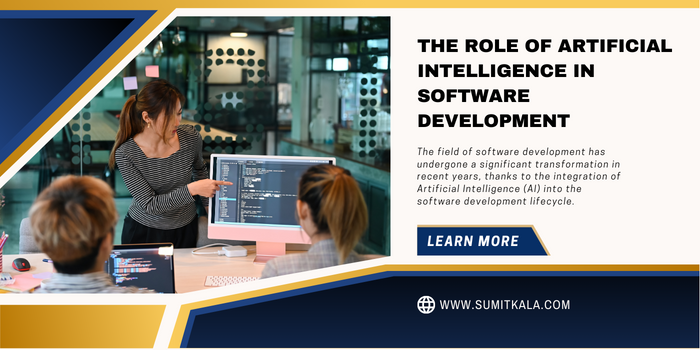
The Role of Artificial Intelligence in Software Development

The field of software development has undergone a significant transformation in recent years, thanks to the integration of Artificial Intelligence (AI) into the software development lifecycle. AI has not only accelerated the development process but has also improved the quality and efficiency of software. In this blog post, we will explore the evolving role of AI in software development and its impact on the industry.
Automating Repetitive Tasks
One of the most significant contributions of AI to software development is its ability to automate repetitive tasks. Developers often spend a substantial amount of time on mundane and repetitive activities, such as code testing, bug fixing, and documentation. AI-powered tools and platforms can automate these tasks, allowing developers to focus on more creative and complex aspects of their work.
For example, AI-driven code review tools can analyze code for errors, security vulnerabilities, and adherence to coding standards, thereby reducing the need for manual code reviews. This not only saves time but also helps in improving the overall code quality.
Enhancing Code Generation
AI has made significant strides in code generation. With the advent of Natural Language Processing (NLP) models like GPT-3, developers can now describe a software requirement in plain English, and AI can generate code snippets or even complete modules based on the description. This not only accelerates the development process but also makes it more accessible to those with limited coding experience.
Code completion suggestions in Integrated Development Environments (IDEs) have also been improved with AI. These suggestions are now context-aware, offering more relevant and accurate code recommendations as developers type, leading to reduced errors and increased productivity.
Predictive Maintenance
AI can play a crucial role in the predictive maintenance of software systems. By analyzing historical data and monitoring real-time performance metrics, AI algorithms can predict potential issues or bottlenecks in software applications. This allows developers to proactively address these issues, minimizing downtime and improving user experience.
In the DevOps and Continuous Integration/Continuous Deployment (CI/CD) pipelines, AI-powered tools can automatically detect and roll back changes that lead to performance degradation or errors, ensuring that only high-quality code is deployed to production.
Personalization and Recommendation Systems
AI-driven recommendation systems are not limited to eCommerce and content platforms. They can also be applied to software development. For instance, AI can recommend libraries, frameworks, and best practices based on a developer's coding style, project requirements, and past preferences. This personalization can help developers make more informed decisions and streamline the development process.
Testing and Quality Assurance
AI has revolutionized the field of software testing and quality assurance. Automated testing tools powered by AI can perform comprehensive testing, including functional, regression, and performance testing, with more incredible speed and accuracy than manual testing. AI can also generate test cases and data, adapt test suites to code changes and prioritize testing based on risk analysis.
Additionally, AI can analyze user feedback and behavior to identify areas of improvement in software applications, allowing developers to prioritize bug fixes and feature enhancements effectively.
Conclusion
Artificial Intelligence is undeniably reshaping the landscape of software development. Its ability to automate tasks, enhance code generation, predict maintenance needs, offer personalized recommendations, and improve testing and quality assurance processes has made it an invaluable tool for developers and organizations alike.
As AI continues to evolve, its role in software development is only expected to expand further. Developers and software development teams that embrace AI-driven tools and practices are likely to enjoy increased productivity, higher code quality, and a competitive edge in the rapidly evolving software industry. AI is not just a buzzword but a transformative force in the world of software development.
Appreciate the creator